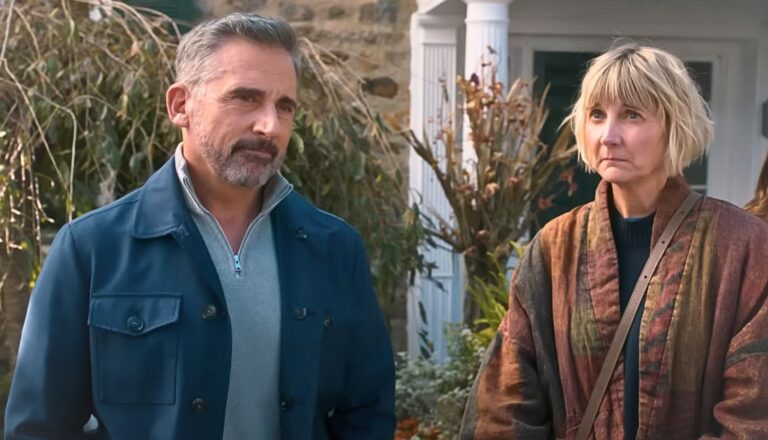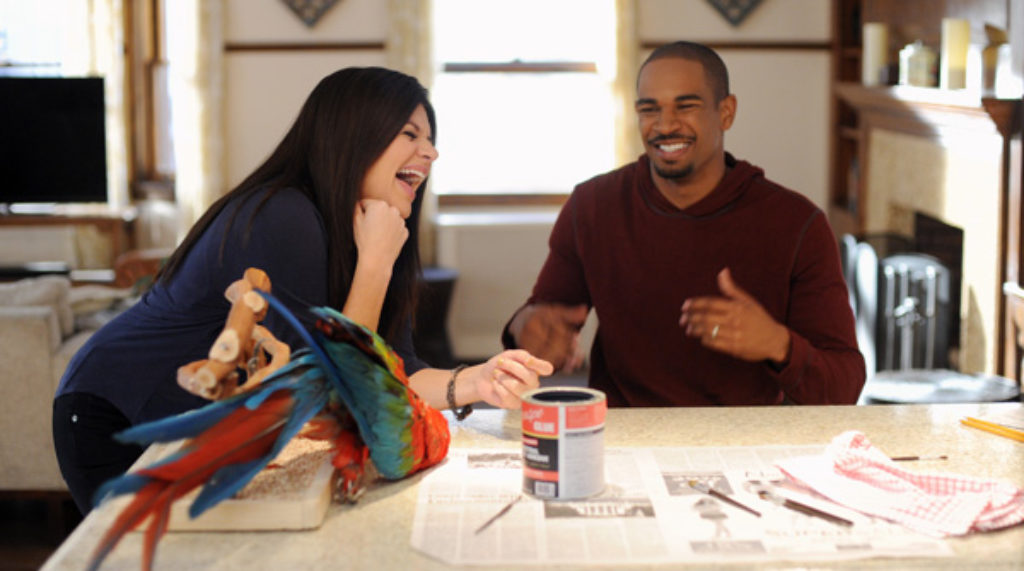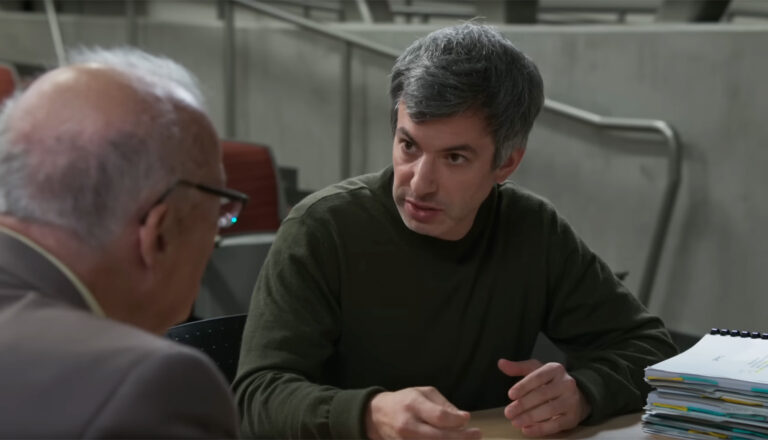
The Four Seasons
No matter the season, Netflix’s dramady ‘The Four Seasons’ and its broken marriages simply feel too cold for comfort.

See Dave. See Dave at the altar. See Dave about to marry longtime girlfriend Alex. Congratulations, Dave and Alex!
See Alex. See Alex run. See Alex run out the church door with some nearly shirtless guy on rollerblades. Uh-oh, Dave. Are you sad, Dave? Do you want rollerblades too?
See Penny. And Max. And Jane. And Brad. They are Dave’s friends. They are Alex’s friends. They are conflicted. Now that Dave and Alex have split up, who will they hang out with? Who will they drink with? Who will they talk about sex with? Who will they talk about sex while drinking with? Poor friends. Poor, poor, morally bankrupt friends.
This is, in essence, the primary-reader setup for ABC’s infantile sitcom Happy Endings: A tight-knit group of friends must start a new chapter when the clique’s alpha couple suffers an ignominious split. Can anything ever be the same again?
In the real world, no. But in the kingdom of Sitcomlandia, of course it can. There, Dave and Alex can test the comical dating waters again. There, the romantic tension can be stabilized at just the right level to keep misguided viewers tuning in to see if Alex and Dave get back together. There, life can just keeping going on, much like it probably did before.
Max prattles on about his homosexual love affairs. Married couple Jane and Brad natter and nitpick. Jenny obsesses about her ever-rotating boyfriends. Zingers fly. Double entendres drop. In truth, it’s hard to believe that any of these pals would be capable of changing, so immersed are they in antics they should’ve outgrown so very long ago.
Happy Endings takes its comic cues from Modern Family and its pedigree from Friends. Then it leapfrogs both of those sitcoms in its quest to be randier, dirtier, duller and dumber. While the show can be funny in a “ha-ha” sort of way, it’s more often funny in a “raw-chicken-smells-weird” sort of way.
In the pilot episode, Brad tells his friends that he and Jane are on a pre-pregnancy cleansing routine to help keep Jane’s uterus “tidy.” “No meat, no sugar, no booze,” he says. But Happy Endings reverses that idea everywhere else: It cannot tolerate ethical behavior and compulsively squelches any trace of maturity, so it banishes such “contaminants” by pouring on the bad decisions and juvenile jukes. Casual sex is not just accepted, it’s encouraged. Heavy drinking is not just allowed, it’s expected. To say this sitcom’s cadres of young adults behave like children is an insult to children everywhere.
Which gives us a thought for our own happy ending: See ABC viewers. See ABC viewers turn off the TV and toss around a Frisbee. Congratulations, viewers! Good job!
“Pilot”
Alex leaves fiancé Dave at the altar. When a friend suggests that he hook up with someone else, Dave at first refuses. “I don’t want to get some sex,” he says. “I want to get some married.” But when he’s told (erroneously) that Alex is on “their” honeymoon with another guy, Dave quickly reconsiders and gets tangled up with an 18-year-old high school student. When Alex returns to their place she sees Dave’s new girlfriend, who’s topless at the time. (We see her from the back.)
Max frequently discusses his homosexuality activities and questions the heterosexuality of others. It’s no wonder that he’s so vocal about such things: Everyone around him dishes up heaping platefuls of sexual references (including jokes pinned to pedophilia). Friends lie frequently and drink relentlessly. Jane downs straight vodka, telling others that it’s water. They say “a‑‑,” “b‑‑ch,” “h‑‑‑” and misuse God’s name.
“The Quicksand Girlfriend”
Dave has a one-night stand with a girl he has no interest in seeing again. So, naturally, they end up dating for three months because he can’t figure out how to break it off. Meanwhile, Alex finds a new roommate, then has to boot her for secretly recording her and posting the footage on a sleazy website. But when Jane hears that Alex ended up earning $8,000 on the semi-porn site, she tells her friend to put the cameras back up and take off her bra.
Penny finds a “gay husband”—an over-the-top flamboyant man whom she can shop with and who will grab her “boobs in a platonic way.” (When he does the latter, the camera at least avoids focusing on the actual contact.) Penny describes Max as a “straight guy who likes dudes.” And Max later calls Penny his “gay husband.”
Jokes are made about slavery, promiscuity, “birthday sex,” voyeurism and sexual fetishes. Someone gets hit by a bike. We see folks drink alcohol, and it’s stated that some of them “drink heavily.” Bad language includes “d‑‑n,” “h‑‑‑,” “b‑‑ch” and misuses of God’s name. A pet is referred to as a “douche bird.”


Paul Asay has been part of the Plugged In staff since 2007, watching and reviewing roughly 15 quintillion movies and television shows. He’s written for a number of other publications, too, including Time, The Washington Post and Christianity Today. The author of several books, Paul loves to find spirituality in unexpected places, including popular entertainment, and he loves all things superhero. His vices include James Bond films, Mountain Dew and terrible B-grade movies. He’s married, has two children and a neurotic dog, runs marathons on occasion and hopes to someday own his own tuxedo. Feel free to follow him on Twitter @AsayPaul.

No matter the season, Netflix’s dramady ‘The Four Seasons’ and its broken marriages simply feel too cold for comfort.

A comedian tries to give real folks a chance to practice real scenarios in a fake environment. Too bad the show is really foul.

The critically acclaimed Star Wars series ‘Andor’ is back. For fans, it is a return to form. For families, the show is still potentially a ride through an asteroid belt.

Tony DiTerlizzi’ popular sci-fi book series migrates to Apple TV+, telling a dystopian tale about a lonely girl, friendship and family that families just might like.